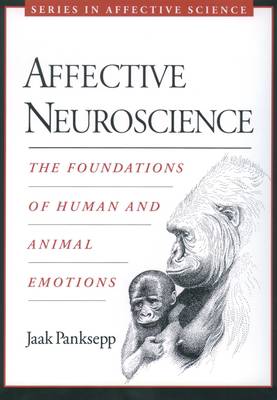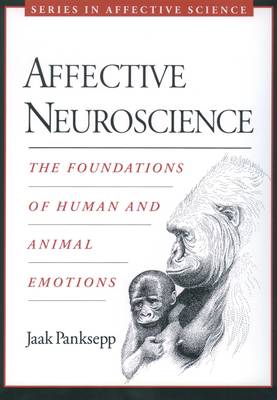
- Retrait gratuit dans votre magasin Club
- 7.000.000 titres dans notre catalogue
- Payer en toute sécurité
- Toujours un magasin près de chez vous
- Retrait gratuit dans votre magasin Club
- 7.000.0000 titres dans notre catalogue
- Payer en toute sécurité
- Toujours un magasin près de chez vous
75,95 €
+ 151 points
Description
Some investigators have argued that emotions, especially animal emotions, are illusory concepts outside the realm of scientific inquiry. However, with advances in neurobiology and neuroscience, researchers are demonstrating that this position is wrong as they move closer to a lasting understanding of the biology and psychology of emotion. In Affective Neuroscience, Jaak Panksepp provides the most up-to-date information about the brain-operating systems that organize the fundamental emotional tendencies of all mammals. Presenting complex material in a readable manner, the book offers a comprehensive summary of the fundamental neural sources of human and animal feelings, as well as a conceptual framework for studying emotional systems of the brain. Panksepp approaches emotions from the perspective of basic emotion theory but does not fail to address the complex issues raised by constructionist approaches. These issues include relations to human consciousness and the psychiatric implications of this knowledge. The book includes chapters on sleep and arousal, pleasure and fear systems, the sources of rage and anger, and the neural control of sexuality, as well as the more subtle emotions related to maternal care, social loss, and playfulness. Representing a synthetic integration of vast amounts of neurobehavioral knowledge, including relevant neuroanatomy, neurophysiology, and neurochemistry, this book will be one of the most important contributions to understanding the biology of emotions since Darwins The Expression of the Emotions in Man and Animals
Spécifications
Parties prenantes
- Auteur(s) :
- Editeur:
Contenu
- Nombre de pages :
- 480
- Langue:
- Anglais
- Collection :
Caractéristiques
- EAN:
- 9780195178050
- Date de parution :
- 30-09-04
- Format:
- Livre broché
- Format numérique:
- Trade paperback (VS)
- Dimensions :
- 179 mm x 254 mm
- Poids :
- 839 g

Les avis
Nous publions uniquement les avis qui respectent les conditions requises. Consultez nos conditions pour les avis.






